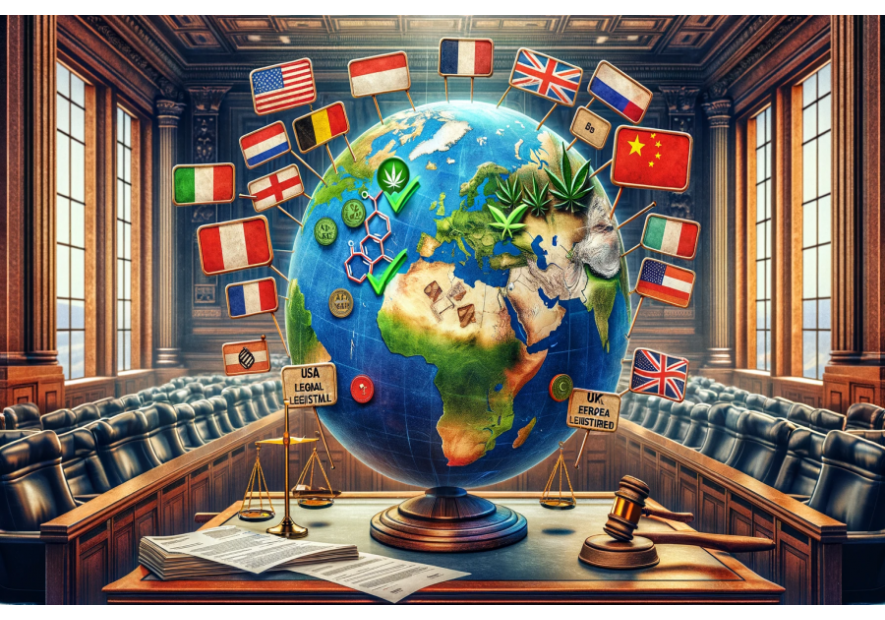The Evolution of CBD Legislation in Different Countries

The Evolution of CBD Legislation in Different Countries
Cannabidiol (CBD) has gained increasing interest in recent years due to its therapeutic and wellness properties. However, the legislation on CBD varies significantly from one country to another. In this article, we will examine the evolution of CBD legislation in different countries and discuss the impact of these changes on the CBD industry.
United States
In the United States, the legalization of CBD experienced a major turning point with the adoption of the Farm Bill in 2018. This law legalized the production and sale of hemp-based products containing less than 0.3% THC (the psychoactive compound in cannabis). However, CBD regulations still vary among states, with some allowing the use of CBD only for medicinal purposes, while others also permit recreational use.
Europe
In Europe, CBD regulation is also complex. While the majority of European Union countries allow the sale of CBD-based products containing less than 0.2% THC, some countries have stricter restrictions. For example, France only permits CBD products derived from certain parts of the hemp plant and without detectable traces of THC. Other countries, like Switzerland, allow higher THC levels (up to 1%) in CBD-based products.
Canada
Canada legalized the recreational and medicinal use of cannabis in 2018, including CBD-based products. CBD products are regulated by Health Canada and must adhere to strict production, labeling, and marketing standards.
Australia
In Australia, CBD is considered a prescription medication and is only legal for patients registered in the medicinal cannabis program. However, in 2021, Australia announced its intention to allow over-the-counter sales of certain low-dose CBD products, which could lead to a change in legislation in the near future.
Latin America
In Latin America, CBD legislation varies significantly from one country to another. Some countries, such as Uruguay and Colombia, have adopted progressive laws allowing the use of medicinal cannabis, including CBD. Other countries, like Brazil, allow the use of CBD for medicinal purposes under certain conditions.
Asia
In Asia, CBD legislation is generally stricter. Although some countries, like South Korea and Thailand, have recently relaxed their laws on the use of medicinal cannabis, including CBD, other countries in the region, like China and Japan, maintain strict restrictions on CBD use. In Israel, a pioneer in cannabis research, CBD is legal for medical purposes and is widely used in pharmaceutical treatments.
Africa
On the African continent, CBD legislation is also highly varied. In South Africa, for example, CBD-based products were removed from the prescription medication list in 2019, allowing for the sale and consumption of CBD for personal use. Other African countries, like Zimbabwe and Lesotho, have also begun to relax restrictions on the use of cannabis and CBD for medicinal purposes.
Conclusion
The evolution of CBD legislation in different countries shows a general trend towards greater acceptance and clearer regulation of these products. However, it is important to stay informed about local laws and regulations concerning the use of CBD. As consumers, it is essential to verify the legality of CBD-based products in your country of residence and to comply with labeling and dosing guidelines to ensure safe and responsible use.
To learn more about CBD-based products and their use, please visit our website www.mygeeko.com and stay informed about the latest news and trends in the industry.
